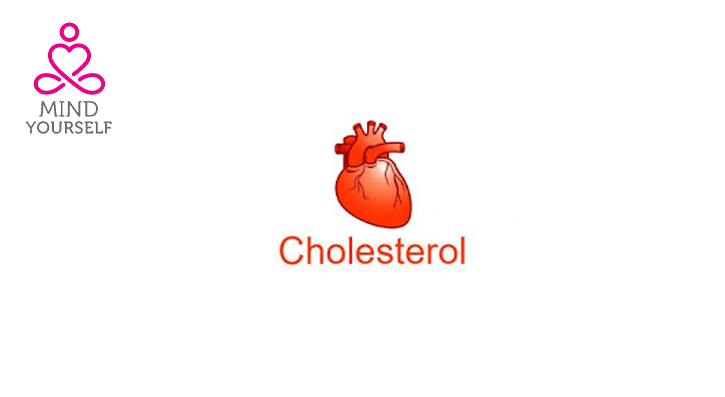National Cholesterol Month
0 min read
07 October 2020

October is National Cholesterol Month and is dedicated to raising awareness of cholesterol.
Cholesterol is a fatty substance which is made in the liver. It’s found in some foods we eat, but most (about 80%) is made in the liver in a complex 37 step process.
We all need some cholesterol in our bodies just to keep us ticking over, however having too much can clog up your arteries and lead to health problems in the future. Your blood fats (that is your cholesterol and triglycerides) can become raised for a number of reasons eg a diet high in saturated fats, not being active enough, so the fats we eat aren’t used up for energy and generic conditions which mean the fats aren’t processed in the usual way.
Cholesterol plays a vital role in how your body works. There is cholesterol in every cell in your body, and it's especially important in your brain, nerves and skin.
Cholesterol has three main jobs:
- It’s part of the outer layer, or membrane, of all your body’s cells
- It’s used to make vitamin D and steroid hormones which keep your bones, teeth and muscles healthy
- It’s used to make bile, which helps to digest the fats you eat
By getting a simple cholesterol test and making positive lifestyle changes, most people can keep their cholesterol levels healthy because high cholesterol increases your risk of heart disease and stroke.
Adopting healthy habits, such as eating a healthy, balanced diet and keeping active, can also help prevent your cholesterol levels becoming high in the first place.
If your GP has advised you to change your diet to reduce your blood cholesterol, you should cut down on saturated fat and eat more fibre, including plenty of fruit and vegetables.
Saturated and unsaturated fat
There are 2 main types of fat: saturated and unsaturated. Eating too many foods high in saturated fat can raise the level of cholesterol in your blood. Foods high in saturated fat include meat pies, sausages and fatty cuts of meat; butter, lard, cream, hard cheeses, cakes and biscuits and food containing coconut or palm oil.
Eating foods that contain unsaturated fat instead of saturated fat can actually help reduce cholesterol levels.
Try to replace foods containing saturated fats with small amounts of foods high in unsaturated fats, such as: oily fish – such as mackerel and salmon, nuts – such as almonds and cashews, seeds – such as sunflower and pumpkin seeds, avocados, vegetable oils and spreads – such as rapeseed or vegetable oil, sunflower, olive, corn and walnut oils
Trans fats
Trans fats can also raise cholesterol levels. Trans fats can be found naturally in small amounts in some foods, such as animal products, including meat, milk and dairy foods.
Artificial trans fats can be found in hydrogenated fat, so some processed foods, such as biscuits and cakes, can contain trans fats.
In the UK, manufacturers and most of the supermarkets have reduced the amount of trans fats in their products.
Most people in the UK do not eat a lot of trans fats, but you should keep checking food labels for hydrogenated fats or oils.
Reducing total fat
Reducing the total amount of fat in your diet can also help reduce your risk of heart disease. Instead of roasting or frying, consider grilling, steaming, poaching, boiling, microwaving.
Choose lean cuts of meat and go for lower-fat varieties of dairy products and spreads or eat a smaller amount of full-fat varieties
Fibre and cholesterol
Eating plenty of fibre helps lower your risk of heart disease, and some high-fibre foods can help lower your cholesterol. Adults should aim for at least 30g of fibre a day. Your diet should include a mix of sources of fibre, which include: wholemeal bread, bran and wholegrain cereals, fruit and vegetables, potatoes with their skins on, oats and barley, pulses, such as beans, peas and lentils and nuts and seeds.
Foods containing cholesterol
Some foods naturally contain cholesterol, called dietary cholesterol. Foods such as kidneys, eggs and prawns are higher in dietary cholesterol than other foods
Dietary cholesterol has much less of an effect on the level of cholesterol in your blood than the amount of saturated fat you eat does.
Get active
An active lifestyle can also help lower your cholesterol level. Activities can range from walking and cycling to more vigorous exercise, such as running and energetic dancing. Doing 150 minutes of moderate aerobic activity every week can improve your cholesterol levels.
For further advice contact your GP or the Cholesterol helpline 0345 4505988, Monday to Friday 10 am to 3 pm.
Page Tags
SERCLatest News
Keep up with the latest from SERC



